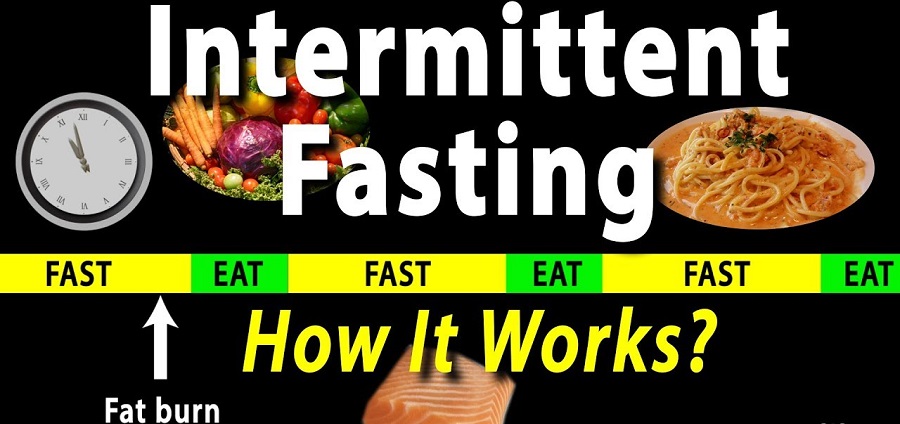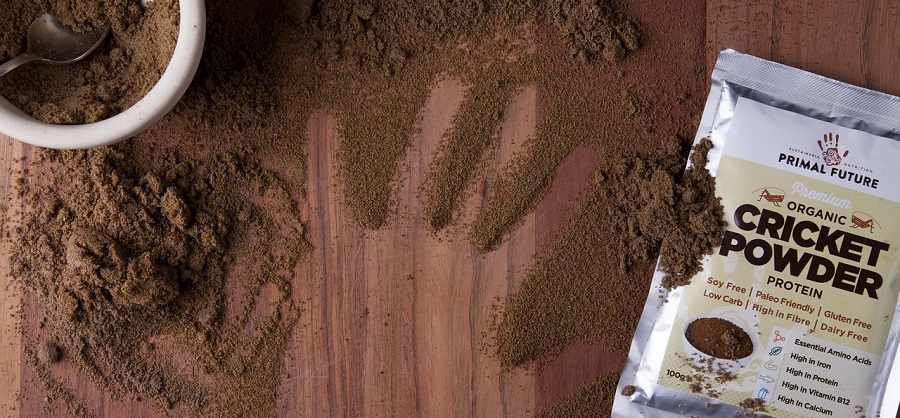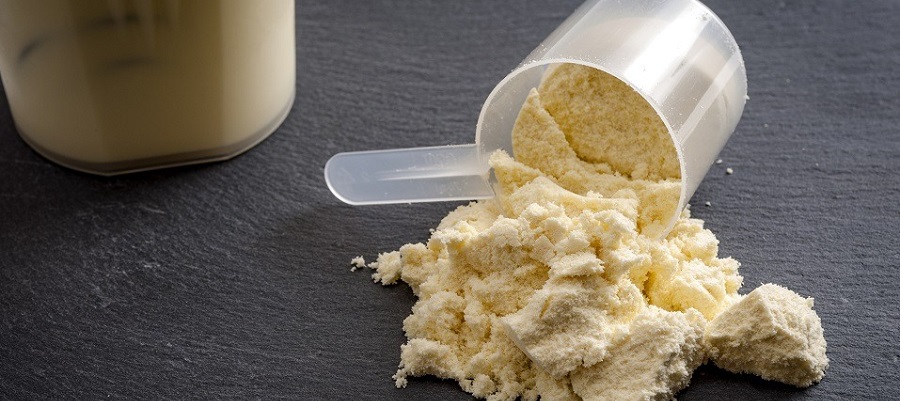Food plays a crucial role in any fasting plan, as it can help to provide the nutrients and energy that the body needs to function properly. When it comes to fasting, the type of food consumed can have a big impact on how successful the fast is.
During a fast, the body is in a state of repair and rejuvenation, so it's important to consume nutrient-dense foods that will support this process. Fruits and vegetables are great options, as they are high in vitamins, minerals, and antioxidants. These foods can also help to keep the body hydrated, which is important during a fast.
Protein is also an important nutrient for fasting, as it helps to maintain muscle mass and repair tissues. Good sources of protein during a fast include lean meats, fish, and plant-based options such as nuts, seeds, and legumes.
It's also important to consume enough healthy fats while fasting. These can help to keep the body satiated and provide energy. Good sources of healthy fats include avocados, nuts, and olive oil.
It's also important to drink enough water while fasting, as it helps to keep the body hydrated and flush out toxins. Drinking herbal teas, such as green tea or black tea, is also a great way to stay hydrated and get some extra antioxidants.
While fasting, it's best to avoid processed foods, sugary drinks, and excessive caffeine consumption. These foods can cause blood sugar spikes and crashes, which can disrupt the fasting process and make it harder to achieve the desired results.
It's always best to speak with a healthcare professional before starting any fasting plan to ensure that it is safe and appropriate for you.
Can you eat fruits and vegetables while fasting?
It is generally safe to eat fruits and vegetables while fasting. Fruits and vegetables are nutrient-dense foods that can provide the body with important vitamins, minerals, and antioxidants, which are important for maintaining overall health. They are also typically low in calories, which can help to support weight loss during a fast. Some fruits and vegetables, such as berries and leafy greens, also have a high water content, which can help to keep the body hydrated. It is important to keep in mind that some fruits are high in sugar such as dried fruits, banana, and mango, and consuming them in large quantities may break your fast. It is best to check with your healthcare professional before starting any fasting plan to ensure that it is safe and appropriate for you.
How much water should you drink during a fast?
It is recommended to drink at least 8-10 cups (64-80 ounces) of water per day, but it is important to drink to thirst during a fast. Drinking enough water is crucial for maintaining overall health and promoting weight loss, as it helps to keep the body hydrated and flush out toxins. Staying hydrated during fasting can also help to reduce feelings of hunger and fatigue.
Drinking water can also be a helpful way to break a fast, as it can help to rehydrate the body and prepare it for digestion. Drinking water before, during and after a meal can also help to control appetite and consumption of calories.
It's also important to note that other liquids can also count towards your daily water intake, such as herbal teas, coffee, and broths. However, it is best to avoid sugary drinks, energy drinks, and excessive caffeine consumption as it can disrupt the fasting process and make it harder to achieve the desired results.
It's always best to speak with a healthcare professional before starting any fasting plan to ensure that it is safe and appropriate for you, and to get personalized advice.
What are the benefits of fasting for weight loss?
Fasting can have several benefits for weight loss:
-
Caloric restriction: By limiting the amount of time during which you can eat, fasting can lead to a reduction in overall calorie intake and thus promote weight loss.
-
Hormone regulation: Fasting can lead to a decrease in the hormone insulin, which in turn promotes fat burning and weight loss.
-
Increased metabolism: Fasting can lead to an increase in the hormone norepinephrine, which can boost the metabolism and lead to greater fat burning.
-
Appetite control: Fasting can help to control appetite by reducing hunger and cravings for unhealthy foods.
-
Improved insulin sensitivity: Fasting can improve the body's sensitivity to insulin, which can lead to better blood sugar control and weight loss.
-
Autophagy: Fasting may trigger a process called autophagy which is the body's natural way of cleaning out damaged cells, in order to regenerate newer, healthier cells. This process can help to boost the immune system and promote weight loss.
It's important to note that fasting alone may not be enough for weight loss, a combination of calorie restriction and regular physical activity is the best way to achieve weight loss goals. It is also important to speak with a healthcare professional before starting any fasting plan to ensure that it is safe and appropriate for you.
Can you eat protein while fasting?
It is generally safe to eat protein while fasting. Protein is an essential nutrient that plays a vital role in maintaining muscle mass and repairing tissues. Eating protein during a fast can also help to reduce feelings of hunger and keep the body feeling full, which can make it easier to stick to the fasting plan.
Good sources of protein during a fast include lean meats, fish, eggs, and plant-based options such as nuts, seeds, and legumes. However, it is important to keep in mind that consuming too much protein can break your fast, it is best to follow your fasting plan guidelines and consume enough protein to meet your body needs.
It's always best to speak with a healthcare professional before starting any fasting plan to ensure that it is safe and appropriate for you and to get personalized advice on how much protein you need.
What are the best ways to break a fast?
The best way to break a fast will depend on the type of fast and the individual, but here are some general guidelines:
-
Start with a liquid: After a fast, it's best to start with something liquid, like water or a broth-based soup, to rehydrate the body and prepare it for digestion.
-
Gradually add in solid foods: Gradually add solid foods back into the diet, starting with something light, like a salad or fruits, and then moving on to more substantial foods like whole grains or protein-rich foods.
-
Consume nutrient-dense foods: Focus on consuming nutrient-dense foods, like fruits and vegetables, lean proteins, and healthy fats, to provide the body with the nutrients it needs after a fast.
-
Listen to your body: Pay attention to how your body feels and stop eating when you're full.
-
Avoid processed and sugary foods: After a fast, it's best to avoid processed and sugary foods, as they can cause blood sugar spikes and crashes, which can disrupt the fasting process.
-
Continue to drink water: Continue to drink water throughout the day to stay hydrated and to help the body to flush out toxins.
It's always best to speak with a healthcare professional before starting any fasting plan to ensure that it is safe and appropriate for you and to get personalized advice on how to break your fast properly.
Is it safe to fast for long periods of time?
Fasting for long periods of time can be safe for some people under certain conditions, but it is not recommended for everyone. It is important to note that fasting for extended periods of time can be potentially dangerous for certain individuals, such as those who are pregnant, breastfeeding, underweight, have a history of eating disorders, or have certain medical conditions such as diabetes or heart disease.
Prolonged fasting can lead to nutrient deficiencies, muscle loss, and fatigue. It can also cause electrolyte imbalances and cause a decrease in metabolism, which can make it harder to lose weight and keep it off in the long term.
It's important to speak with a healthcare professional before starting any fasting plan, especially if you're considering a long-term fast, to ensure that it is safe and appropriate for you. It's also important to monitor your body's response to fasting and to stop if you experience any negative side effects such as extreme fatigue, weakness, or dizziness.
Intermittent fasting, where you eat in a specific time window, with certain days of the week designated for fasting or eating less, or time-restricted fasting, where you eat within a specific time window are considered safe and have some health benefits and is a more sustainable way for weight loss and overall health.
Can you drink coffee or tea while fasting?
Whether or not you can drink coffee or tea while fasting will depend on the type of fast you are doing.
In most types of intermittent fasting, such as the 16/8 method, where you fast for 16 hours and eat during an 8-hour window, you are allowed to consume non-caloric beverages during the fasting period, including coffee and tea. However, it's important to avoid adding any calories to your beverage, such as sugar or cream, as this can break your fast.
In some types of fasting such as the 5:2 diet, where you eat normally for 5 days and restrict calorie intake for 2 non-consecutive days, you are allowed to consume calorie-free beverages such as water, tea, and coffee, but the consumption of the beverage should be limited.
It's important to note that caffeine can have an impact on the body, it can suppress appetite, but it can also cause anxiety, jitteriness, and insomnia. It's always best to speak with a healthcare professional before starting any fasting plan to ensure that it is safe and appropriate for you and to get personalized advice on how to incorporate coffee or tea in your fasting plan.
Are there any foods that should be avoided during a fast?
During a fast, it's best to avoid foods that are high in calories, sugar, and unhealthy fats. These foods can cause blood sugar spikes and crashes, which can disrupt the fasting process and make it harder to achieve the desired results.
Some specific foods to avoid during a fast include:
-
Sugary foods and drinks: Foods that are high in sugar, such as candy, pastries, and sugary drinks, should be avoided during a fast.
-
Processed foods: Processed foods, such as fast food, frozen dinners, and snack foods, are often high in calories and unhealthy fats and should be avoided during a fast.
-
High-fat foods: Foods that are high in saturated or trans fats, such as fried foods, butter, and cheese, should be avoided during a fast.
-
Alcohol: Alcohol should be avoided during a fast as it contains empty calories and can disrupt the fasting process.
-
High-carb foods: Foods that are high in carbohydrates, such as bread, pasta, and rice, should be avoided during a fast, especially in certain types of fasting plans.
It's always best to speak with a healthcare professional before starting any fasting plan to ensure that it is safe and appropriate for you and to get personalized advice on what foods to avoid during your fast.


